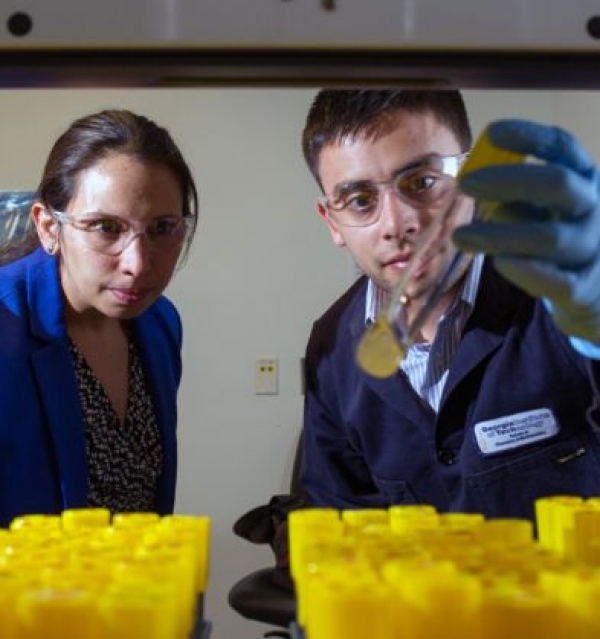
RESEARCHERS TAKE A STEP FORWARD IN THE QUEST TO CREATE A USABLE, HIGH ENERGY BIO-FUEL
Researchers using engineered E. coli to generate a high energy biofuel from pinene, a hydrocarbon produced by conifer trees, discovered an enzyme combination that has created the most powerful bio-fuel to date.
According to researchers from the Georgia Institute of Technology and the Joint BioEnergy Institute, improvements must still be made to the process if the high energy biofuel is to reach the potency where it could be used in place of petroleumbased fuel. Petroleum-based high energy fuel has a high power-to-density ratio that is necessary for powering smaller machinery, such as in missiles and aerospace technol ogy. Since this fuel is in limited supply, the demand drives the price up to $24 per gallon.
“If you are trying to make an alternative to gasoline, you are competing against $3 per gallon. That requires a long optimization process. Our process will be competitive with $25 per gallon in a much shorter time,” Pamela Peralta-Yahya, an assistant professor at the Georgia Institute of Technology, said in a Georgia Tech press release.
Even though the researchers were able to increase the pinene production six-fold during their experiment, they will need to increase the productivity another 26-fold to produce a biofuel that could take the place of petroleum-based high energy fuel.
Peralta-Yahya says that a molecule is inhibiting the enzyme’s ability to produce more pinene during biofuel production, so they may need to find a different enzyme that does not become inhibited or find a method that would use less amounts of the hindering molecule in order for the biofuel to reach a strength equal to petroleum-based fuel.
FUNDS AVAILABLE TO BOOST COLORADO SPECIALTY CROP INDUSTRY
This year the Specialty Crops Block Grant Program has made $700,000 available for the advancement of Colorado specialty crops, such as fruits and vegetables, dried fruits and nursery crops including flowers and sod.
The Food, Conservation and Energy Act of 2008, known as the farm bill, allowed the United States Department of Agriculture to partner with state departments in order to improve the competitiveness of specialty crops through this grant program. According to the Colorado Department of Agriculture, Colorado receives 10 percent of its agricultural cash receipt from Colorado specialty crops.
“The diversity of Colorado’s specialty crops is staggering. This grant helps specialty crop growers and organizations access valuable resources for research and promotion,” Casey Palmer, CDA marketing specialist, stated in the Colorado Department of Agriculture’s press release.
Proposals to obtain a grant from this program must indicate how the specialty crop stakeholder will use the awarded grant to make a beneficial impact on the specialty crops industry for the greater good of the public rather than a single organization, institution or individual. Last year’s participant in the program, Colorado State University, used their awarded funds to provide technical and financial support to small acreage specialty crop farms, and new specialty crop producers in order to generate specialty crop production innovations and increase marketing opportunities.
Some of the proposed ideas posted on the Colorado Department of Agriculture website include using the grant to advance landscaping practices, or possibly investigating disease and pest issues.














